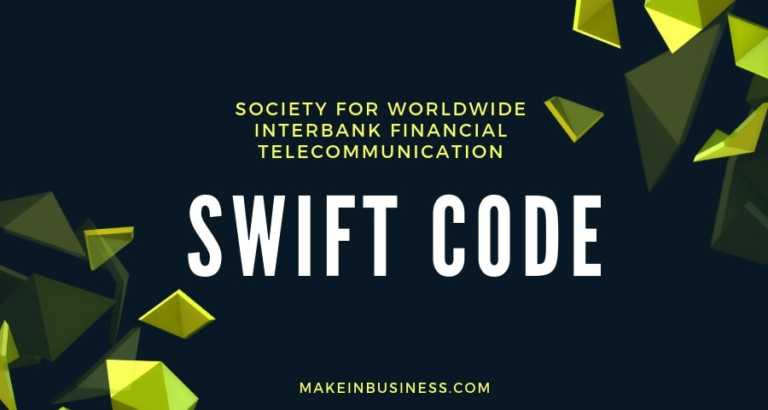What is Invoice Financing? How it can Help Small Business

Invoice financing can be defined as a means of funding your company with cash based on the invoices you raise on your customers who would pay at a later date. Such cash helps you avoid working capital crunch situations and meet expenses that could be delayed by your customers who make delayed payments.
In this arrangement between the lender and the company which raises the invoices, there is a certain percentage amount of fee charged by the lender on the invoice amount. These invoices are under finance and the amounts due on it would be payable by the customers on their due dates directly to the lender. By adopting invoice financing, the problem of delayed and deferred collection can be easily mitigated by the company.
Real life example of invoice financing
Goods are generally sold on credit to your wholesale or retail customers with the invoice raised. These invoices are credit invoices and due to be paid on various dates as agreed between both parties.
The clients defer the payment as agreed but the company who raised the invoice may require funds immediately.
Such amounts would fit into the slot of Accounts Receivables and may even get paid well after the due date.
To avoid such a situation of working capital crunch and deterrents towards growth, short-term financing can be facilitated.
The customer places his unpaid invoices with the lender and can obtain finance even up to 85% of its value. Thus, the working capital gap can be bridged, or growth plans can be achieved.
The other hidden advantage is that the lender would also follow- up for the payments from the customers.
Benefits of Invoice Financing
1. Increase in cash flow
Cash flow issues are not confined to the lesser profitable companies alone but are also found in companies that register high profits. The fact remains that the debts they have to pay to arise before they collect their receivables. Invoice factoring facilitates these payments on time to their vendors and protects the company’s reputation.
- Cash flow can be augmented by collecting the money due from its customers by offering an early bird discount. Even though the money received is lower than the original amount, the extra cash flow due to the discounting of invoices covers up the gray areas.
- Offering special invoicing procedures with your clients allows for better negotiation and can lead to increased prices mitigating the discount amount.
It is best practice to do a KYC’ (know your customer) in case they wish to avoid cash payments to you. It is a matter of time before you realize such clients would always be delaying their payments and push you towards a cash crunch’. Charging a high interest rate can solve the issue.
2. Faster access to cash
The idea behind invoice financing is to obtain the funds necessary to run your business efficiently. In other words, the amount should reach you quickly and the unpaid invoices lying with you turn liquid.
Therefore, you should choose the perfect lender who turns around to pay you in a day or two after receiving such invoices. The amount can be expedited to your suppliers for continued supply from their end.
3. Understand the difference with business loans
Invoice financing should never be interlinked with business loans. Invoice financing can only be made to the extent of the invoice amount and does not lead to additional debts. Business loans sometimes can easily exceed invoice amounts.
Thus, the finance obtained through invoice financing is safe and within your reach to pay back.
4. Flexibility in financing — Traditional Versus Invoice Financing
Banks do fund businesses, but the process is quite cumbersome, and the money would not reach the businessman on time. Banks are found active if the customer is well known, but those are exceptions only. Therefore, a vendor who owns a business that is not large can find comfort in financial institutions including NBFC’s.
The lender here does not go by popularity but by the customer on whose name the invoice is raised. They measure the credibility of such clients and decide on the financing. They are not too keen on how healthy the balance sheet is of the company which approaches them. It is best to deal with customers who have the repaying ability and are on time. Invoice Financing becomes easier, and the cash flow is uninterrupted.
5. Growth is mandatory
Any business needs to grow in the right direction year after year. For this purpose, cash flow is most important. When the businessmen can en-cash his invoice the embarrassment of non-payment to suppliers on their due dates can be avoided. The reason is that they have the cash flow under full control. The supplies keep coming in as planned, and the production or sales face no difficulty. Time is also saved by the company as they do not defer payments.
To summarize the above
- New clients can be increased
- Credit facilities need not be stopped for existing clients who seek then
- Suppliers payment on due dates
- Time can be saved by avoiding embarrassing meetings with suppliers in case of non-payment.
All these factors bring in cash, improve sales, develop relationships which lead to GROWTH.
6. Increase in healthy credit portfolio
Sales are the key to the success of any business. To improve it, credit facilities would be extended to customers who would never pay on due dates, and in fact, they defer it to the brink. It would certainly weaken your cash flow. Moreover, the lender who does invoice finance for you has the basic trust that your customers are good in repayment.
To earn this faith, it is important to extend credit to customers who are disciplined in their payment. The top advantage is that you would have a healthy credit portfolio. Best practices like launching KYC’s would help you certainly get there, where the majority of them would be the best.
7. Lender’s good portfolio also matters
Prevention is better than cure is an adage. You are aware as a businessman that your commitment to suppliers cannot be based on the day the debtors are liable to pay as their credit period ends. Your reputation would unnecessarily go down since others faulted in their payments to you.
Invoice Financing comes in handy over here with money ready to be paid off to your creditors, including suppliers.
Some suppliers would also charge you interest which results in cash outflow practically.
At the same time, you should be aware of the status of the lender who lent you money on your invoices. If your customer does not pay your lender, his debts are certain to mount, and he may very well refuse your finance in the future for everything has a breaking point.
Hence, say No to clients who you know are going to default or stretch the payment without an end. The lender’s good portfolio of your invoice also matters!
Final Thoughts
A business reaches out for financing for the reasons mentioned above. Invoice Financing is a lesser burden on the businessman as the interest rates, or fees are reasonably low. One has to take into account that the credit invoices get converted into cash almost immediately, and these funds solve your debt crisis or help you grow. There is no nominal interest charged for this period, and that also adds to the cash flow.
The businessman should prioritize what amount should be used to stabilize cash- flow (or working capital), and the rest of it should be aimed at growth.
The extra cash flow arising out of invoicing should be used in profitable areas for growth purposes.
As seen above, Invoice Financing is loaded with benefits and can only be one disadvantageous in case it is poorly handled. The essential plan you need to have is a long-term business plan and how far would invoice financing would help you achieve it.
FAQs
Invoice financing is a type of funding that pays a business a percentage of its sales invoices upfront, allowing businesses access to much-needed funds to cover operational costs in a timely manner.
Invoice financing allows businesses to access funds quickly, providing a much-needed cash injection for operational costs. Additionally, businesses can use invoice financing to free up capital and improve their cash flow, and it can also help reduce the risks associated with the long payment cycles of invoices.
Invoice financing providers are typically finance companies, banks and online platforms who provide financing against invoices.
No, invoice financing typically doesn’t involve taking out a loan. Instead, a business sells its invoices at a discounted rate in exchange for cash.
Invoice financing is relatively straightforward; a business sells its accounts receivable to a finance company for a percentage of its invoices. The finance company then pays the business a given percentage upfront, leaving the business to collect the remaining amount from the invoice’s due date.
Yes, invoice financing typically involves fees for administration, loan closing, and potentially other services depending on the provider.
Invoice financing is typically used by businesses that receive payments from customers later than their due date. This can include businesses in a variety of industries, such as manufacturing, construction, or software and tech companies.
It depends on the provider, but typically businesses receive their funds within days of submitting their invoices.
The documentation required for invoice financing varies depending on the provider, but typical documents include sales and purchase invoices, customer contracts, and customer credit agreements.
Invoice financing is an effective financing option for many businesses, but it isn’t right for everyone. Before making the decision to use invoice financing, businesses should carefully consider their own financing needs and thoroughly research their options.






